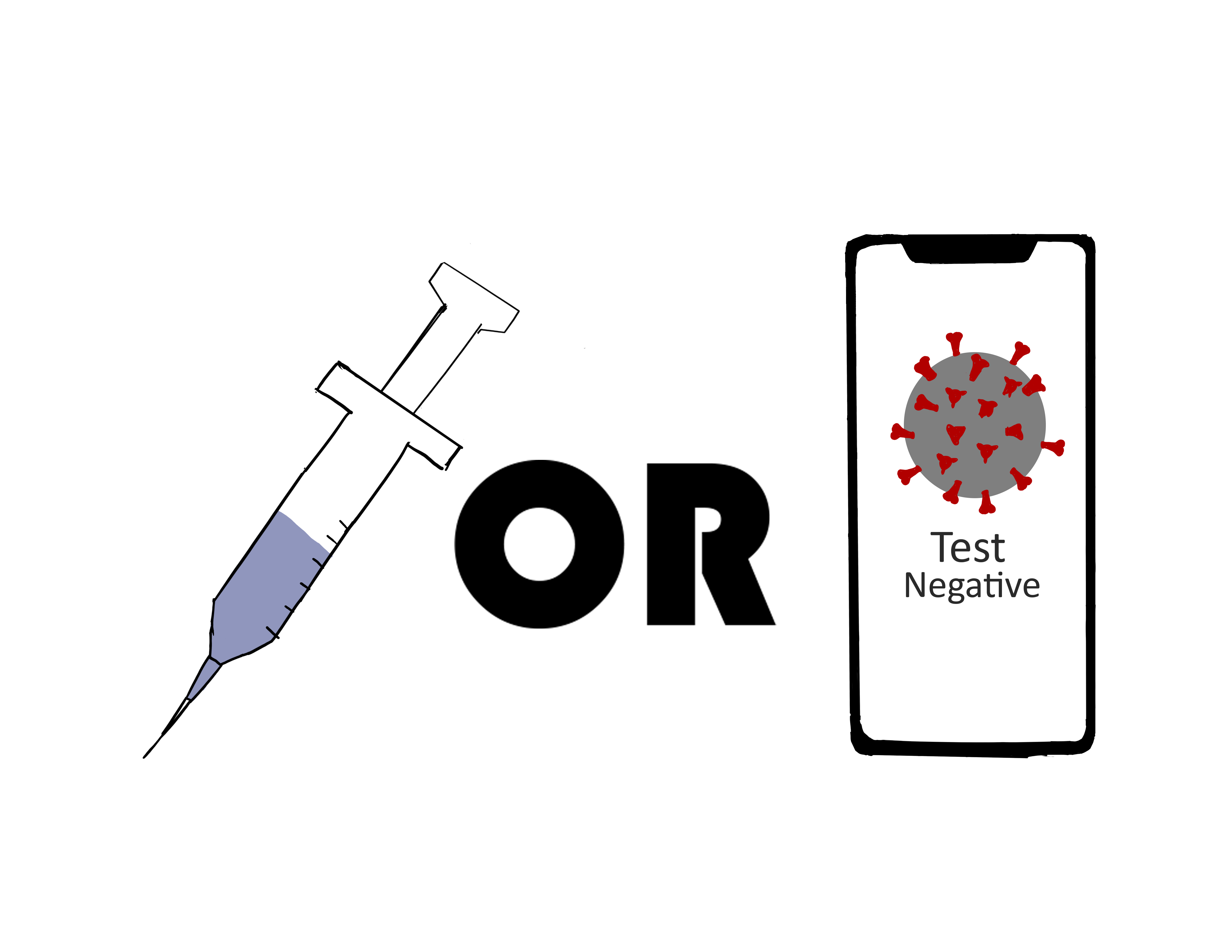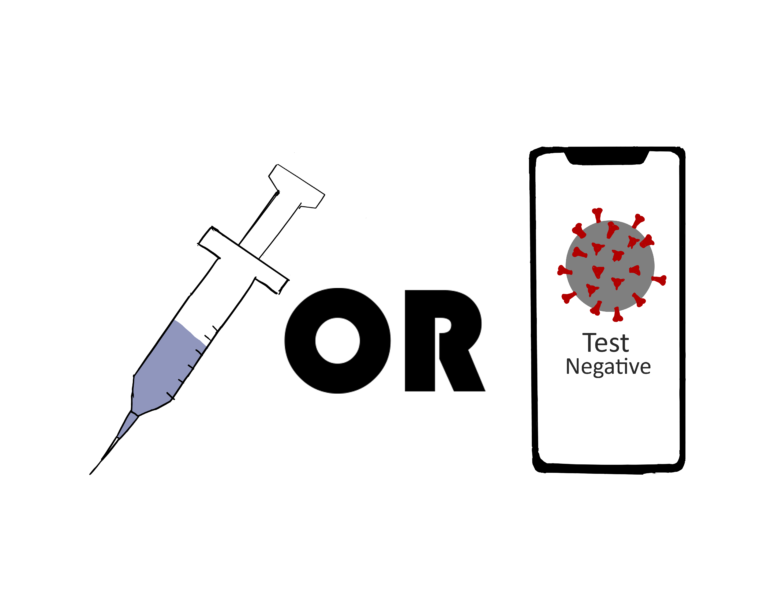

On Oct. 1, Gov. Gavin Newsom announced that the state government would begin writing a vaccine mandate policy for all California students because of the Food and Drug Administration’s May 2020 approval of the COVID-19 vaccine for people over the age of 12.
About 90% of employees in the San Mateo Union High School District have been vaccinated, and 83% of students have been vaccinated in all SMUHSD high schools. Although these rates are impressive, a vaccine mandate — ensuring the immunization of virtually every staff member and student — would minimize the likelihood of COVID-19 outbreaks. Still, not everyone is able to get vaccinated, and individuals’ unique circumstances must be taken into account.
In a news conference that day, Newsom stated, “We want to end this pandemic. We are all exhausted by it.” Many people agree with this statement, as they have been waiting for an end to this ongoing pandemic for almost two years. Former President Trump declared victory over the virus on July 4, only to reverse course when the delta variant began spreading later that month. A vaccine mandate wouldn’t completely end the pandemic, as the virus is constantly mutating.
“We should educate students about the vaccine — the benefits and the effects”
Nonetheless, even if the vaccine cannot make anyone permanently immune to COVID-19, it will significantly lower chances of hospitalization and death and help build collective immunity. The vaccine, at least in the short term, will ensure that students and the people around them are safe and protected from COVID-19.
Many students remain unvaccinated for reasons of previous exposure, allergies, other health conditions, religion or parental control. Some students may justify not getting vaccinated on grounds of personal freedom, namely, that the individual has the right to control one’s body and to approve or reject medication.
Yet, unvaccinated students who cannot get vaccines may face exclusion from school activities and events for reasons beyond their control. One could argue that the point of school activities is to do them collectively and to support each other no matter what they believe in. If students don’t personally believe that they should get vaccinated, they should have a choice, without being forced to do something they don’t want to just to participate in school activities and show school spirit.
Everyone has a different opinion on what rules should be set, but I think that every circumstance should be considered and looked at. I think we should educate students about the vaccine — the benefits and the effects — in addition to giving students more resources to inform themselves and others.
If there were to be a vaccine mandate, I would say there should be a few exceptions. The parent or guardian of a student who doesn’t want to be vaccinated should be able to appeal to the District, and depending on the situation, they could be excused from the vaccine. This is mainly for religious and health reasons. If the student is excused from the vaccine, they should be tested weekly. This is to ensure the safety of students and those around them. If an individual tests negative, they should be able to continue participating in activities, regardless of vaccination status. Along with this, there should be accessible testing sites on campus.
A vaccine mandate is beneficial, but respect for individual rights is also necessary. Administrators and unvaccinated members of the community need to make their positions known to each other. This way, we can ensure the safety of all students and respect individual conditions and rights.




